Bringing the Wow to Wau
Meet some of our patients from South Sudan
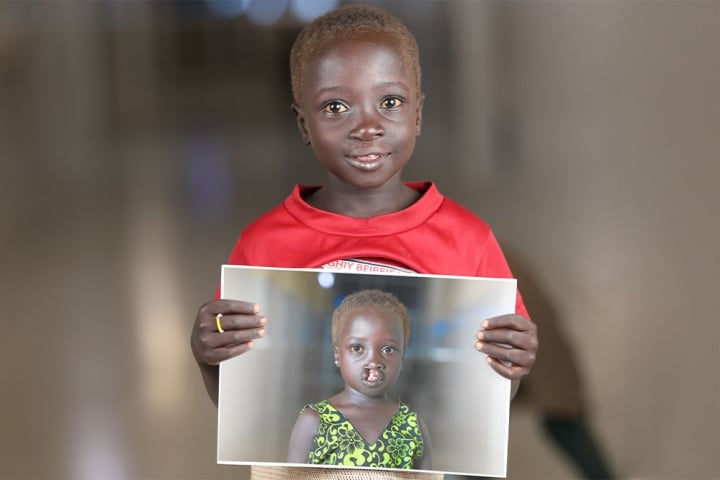
At Smile Train, we believe that high-quality, sustainable, comprehensive cleft care should be accessible to anyone who needs it, no matter where they live. It’s why we support treatment for patients in more than 75 countries through our “teach a person to fish” model. In certain regions, Smile Train-sponsored care is one of the few cleft treatment options available — if not the only one. Such is the case in South Sudan. Here are stories of just a few of the remarkable children who have received life-changing cleft care at Mary Help Hospital, our partner in the city of Wau.
Jacob, 5
When Jacob was born, his cleft immediately made him and his mother, Anglina, targets of stigma and suspicion from their community, who wrongly blamed her for it.
Anglina’s oldest daughter also had a cleft, so she had been through it all before. But that didn’t make it any less heartbreaking. More than anything, she worried for Jacob. She knew how mean other children could be and how hard his future might get.
Sure enough, as soon as Jacob started playing with other children, he reflexively began trying to cover his mouth.
"It pained me deeply to see Jacob struggle with his cleft lip, knowing the impact it had on his self-esteem," Anglina said.
Jacob and his sister seemed destined to face cruel, unfair treatment forever due to the way they were born. Then, all at once, their fortunes changed.
One day, they heard a radio ad promising free cleft treatment at Mary Help Hospital in Wau. It felt like nothing short of a miracle.
Anglina wasted no time bringing Jacob to Mary Help. He was soon scheduled for surgery.
Gallery
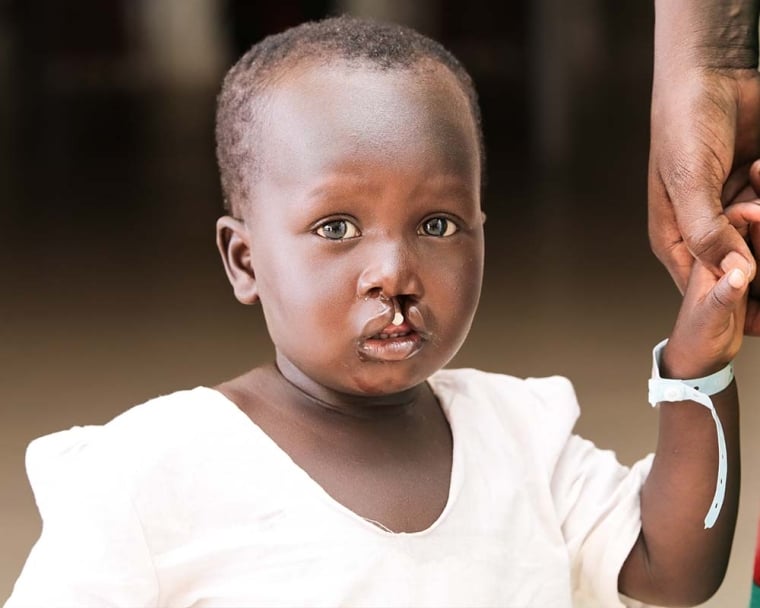
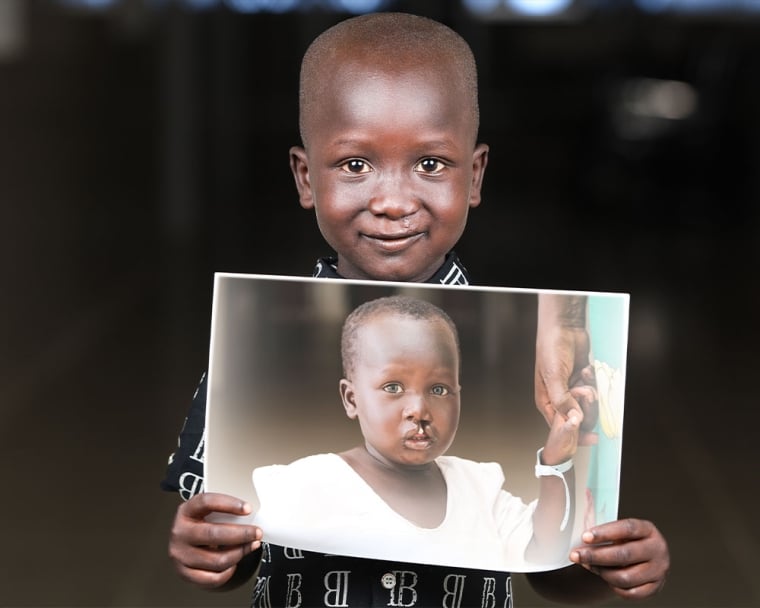
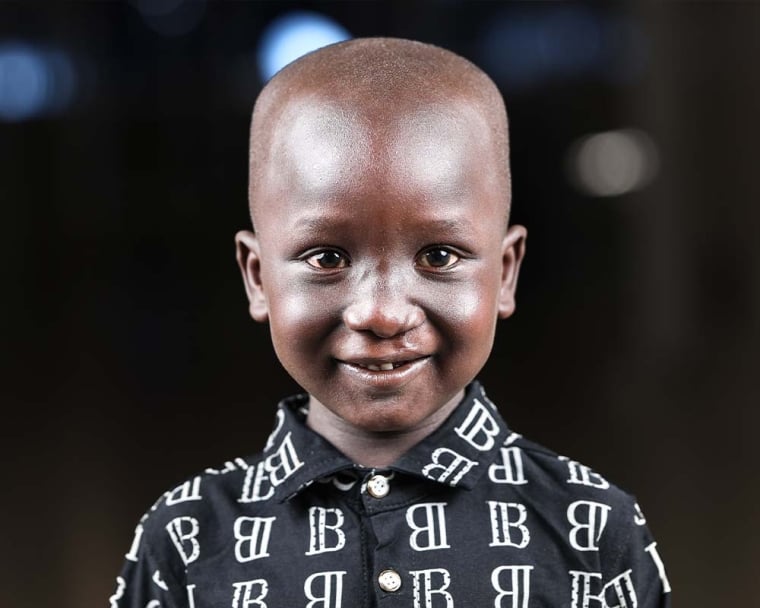
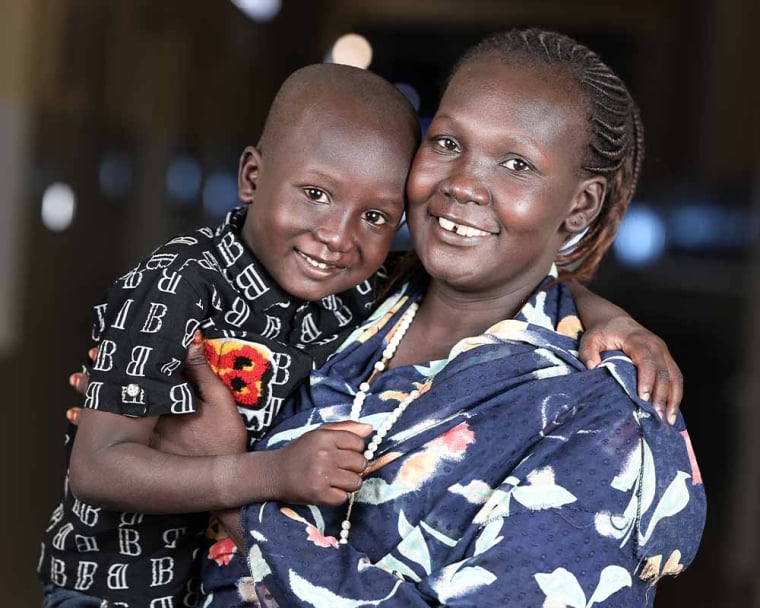
“Witnessing his newfound confidence, no longer hiding his smile, and improving in speech — it's truly heartening to see,” Angilina said afterward.
Jacob’s sister also had her free, Smile Train-sponsored cleft surgery a short time later. Both are now happily attending school, where they are surrounded by friends!
Machiek, 6
Machiek’s name means “open mouth.” In certain South Sudanese communities, it’s regularly given to babies with clefts and other facial differences, marking them as different or other.
“Machiek bore the brunt of prejudice and isolation from an early age,” explains his father, Nhomngeng.
Nhomngeng admits that, at first, even he failed to embrace Machiek.
"When I first laid eyes on him, I was filled with disbelief. I didn't think he would survive or thrive. He was fragile beyond words. Initially, I even refused to hold him,” he confessed.
Feeding Machiek was a daily struggle. His mother, though, never wavered. She fought tirelessly to keep him alive.
When he began playing with other children, his name quickly became a taunt tossed mercilessly at him.
“Children started using it unkindly, teasing him about his 'open mouth' whenever he made a mistake. It hurt him deeply, and he began spending more time at home, away from other children,” shared Nhomngeng.
His parents were crushed to see him hurt and isolated. They wanted to help, but did not know of any treatment for clefts.
That changed when a neighbor told them he had heard a radio ad for an organization that sponsored free cleft treatments at a hospital in Wau.
At once, Machiek’s family made the eight-hour journey to the city for his Smile Train-supported cleft surgery. It was a complete success.
Gallery
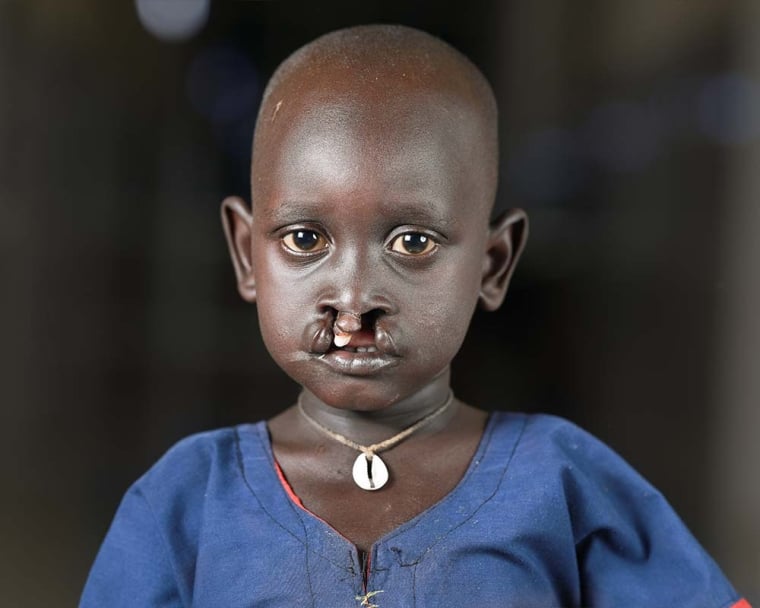
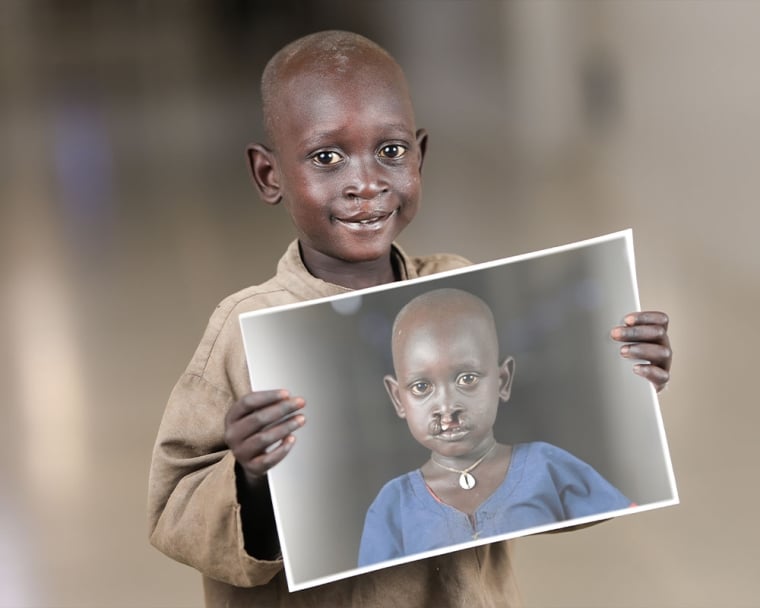
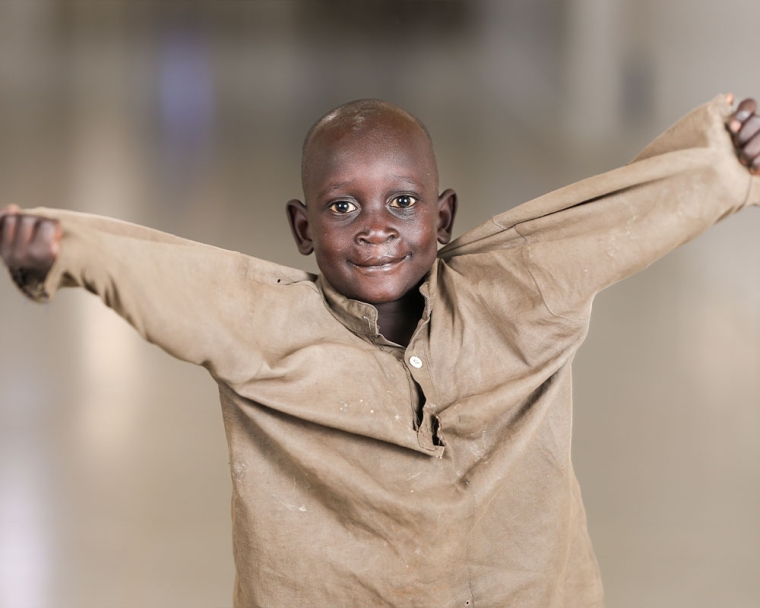
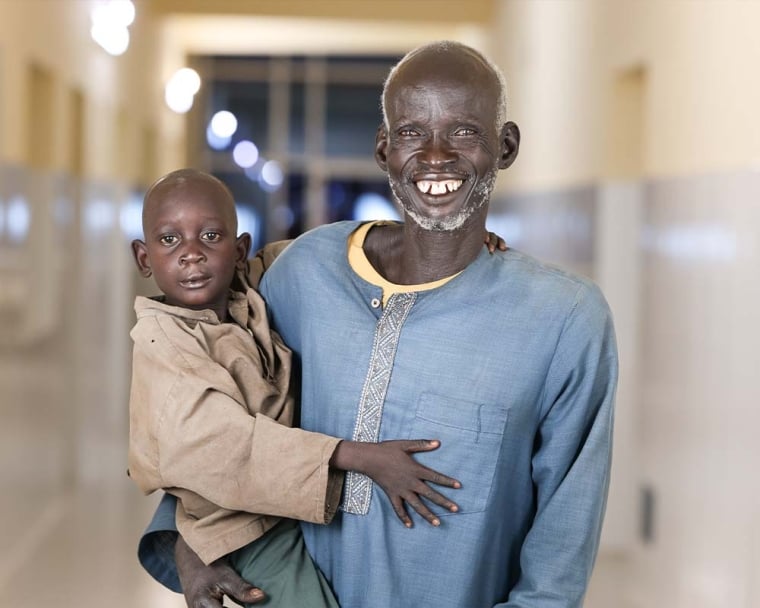
When Machiek returned home, there was no more social isolation, no more name-calling. Instead, his family and neighbors threw him a feast to celebrate!
Nhomngeng also found himself profoundly changed by Machiek’s journey. He decided his boy deserved a new name that was free of prejudice, a name that would proudly celebrate their bond as father and son. There was only one that was right: Nhomngeng.
Machiek, 8
This Machiek also got his name because of his facial difference. He is the fourth of seven siblings, and the only one with a cleft. Right away, he faced rejection in his village.
"I always felt unwanted. People would chase me away and insult me constantly, so I couldn't play with other children,” he said.
Machiek’s future changed in an instant when he was eight years old. His uncle saw a flyer advertising Smile Train’s partnership with Mary Help Hospital — it even had pictures of a child before and after cleft surgery. His family was convinced: This was the treatment he needed.
Machiek arrived at the hospital for his surgery, and his eyes widened. Looking around at all the other children with clefts, he felt a new sensation: belonging.
“When I saw other children like me, it was a huge relief. I finally felt wanted,” he shares.
Gallery
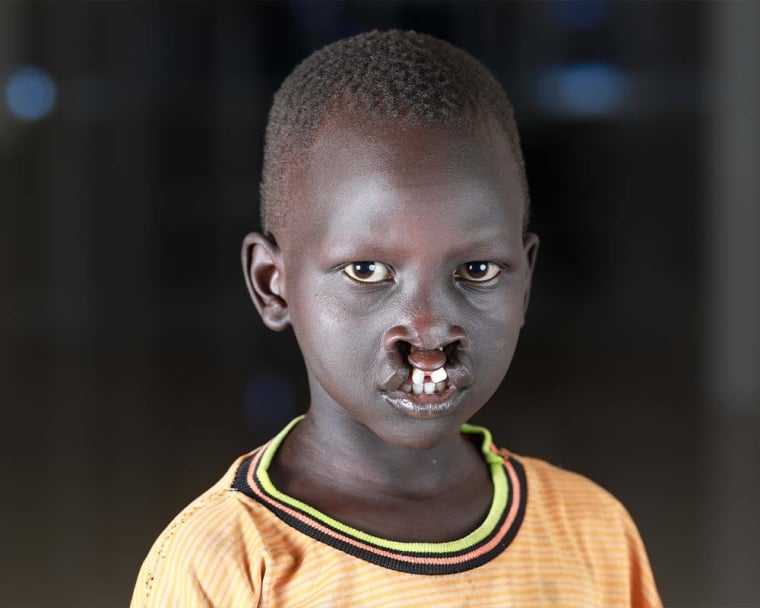
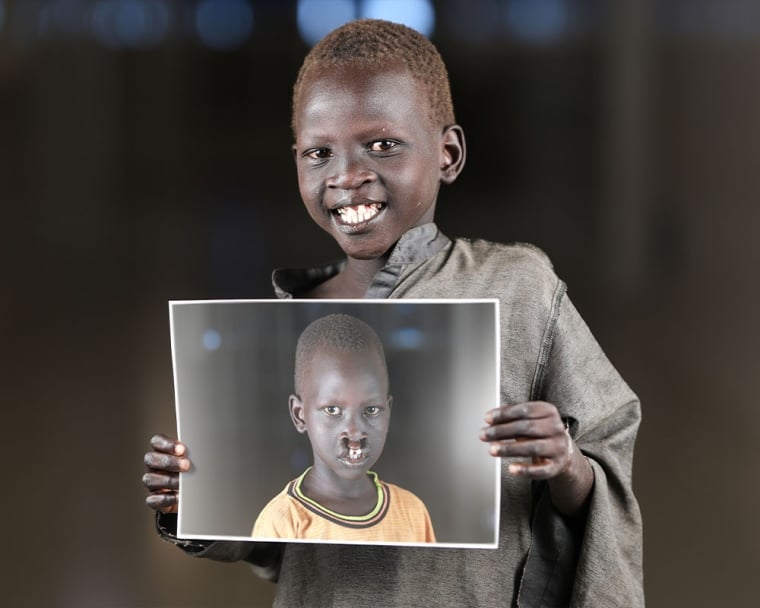
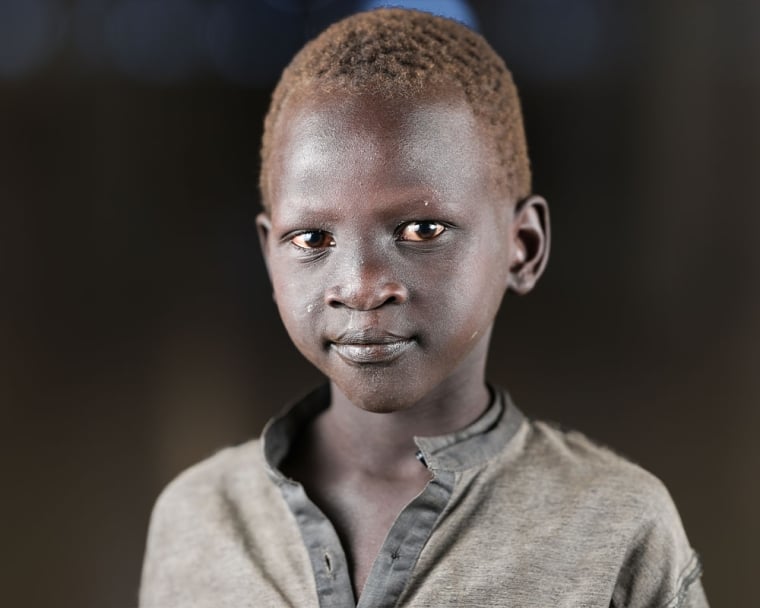
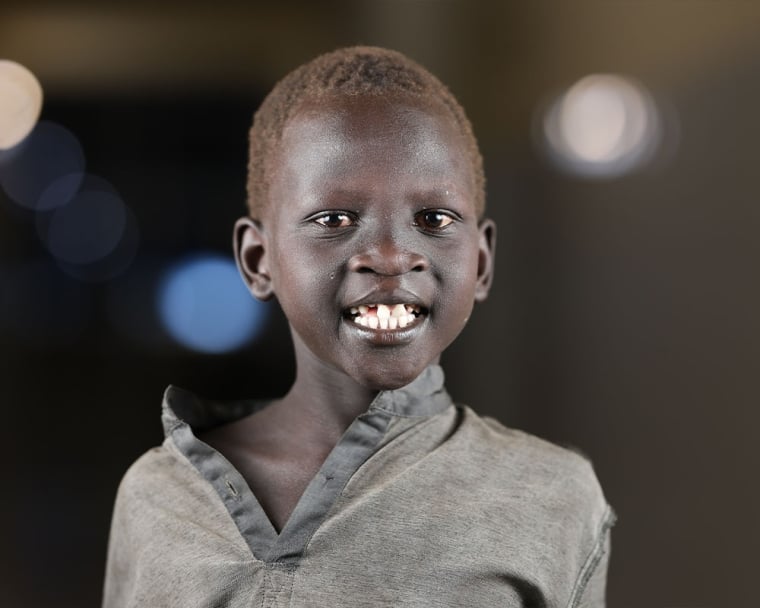
Machiek’s surgery was a complete success. And thanks to Smile Train, it was completely free for his family.
Now, for the first time in his life, he could play just like any other child — no taunts, no rejection. Just belonging.
Machiek’s bravery in seeking cleft care had a far-reaching impact. Families came from other villages to witness the results of his surgery, amazed at his transformation. So far, he has inspired eight other people to get cleft care. Now that’s the power of a smile!
Ngor, 5
Out of six siblings, Ngor was the only one born with a cleft. It shocked his mother, Abuk.
“I had never seen such a condition before. My in-laws blamed me, saying they had never had such a problem in their family. They claimed that I had to be the cause. I felt ashamed,” she shared.
Feeding Ngor proved challenging. Whatever he drank came out through his nose. His clothes were always soaked with milk or water.
When he went to play with other children, they taunted him.
“He felt rejected, I could see it. He began to isolate himself, and it broke my heart,” Abuk said.
Hope arrived out of the blue when Abuk heard a radio ad for Smile Train’s program at Mary Help.
“I didn’t even know his condition could be treated!”
Gallery
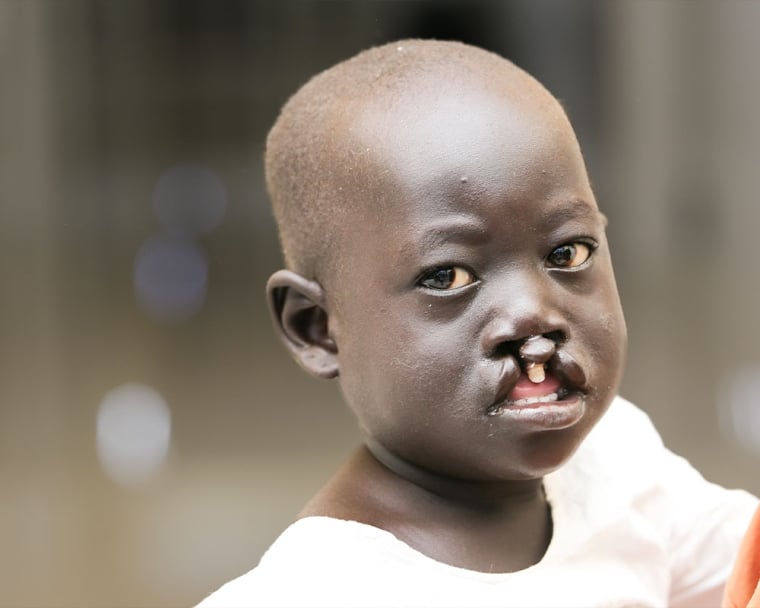
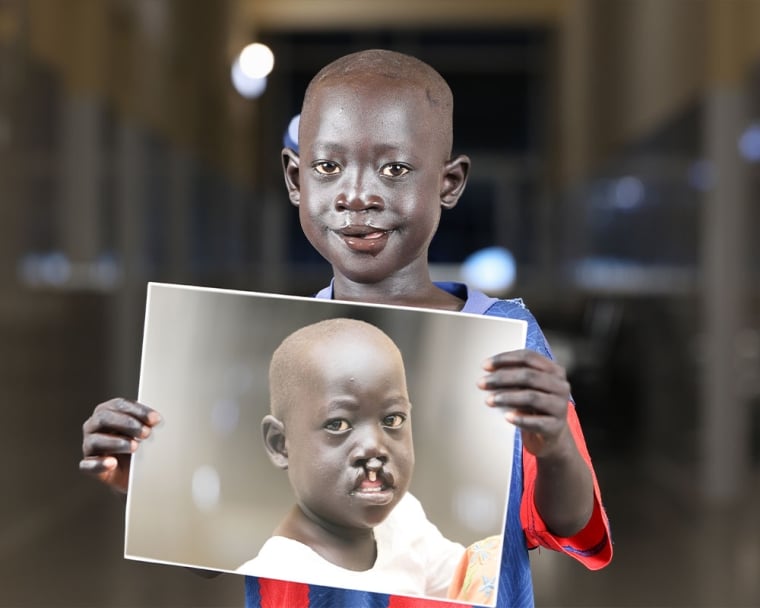
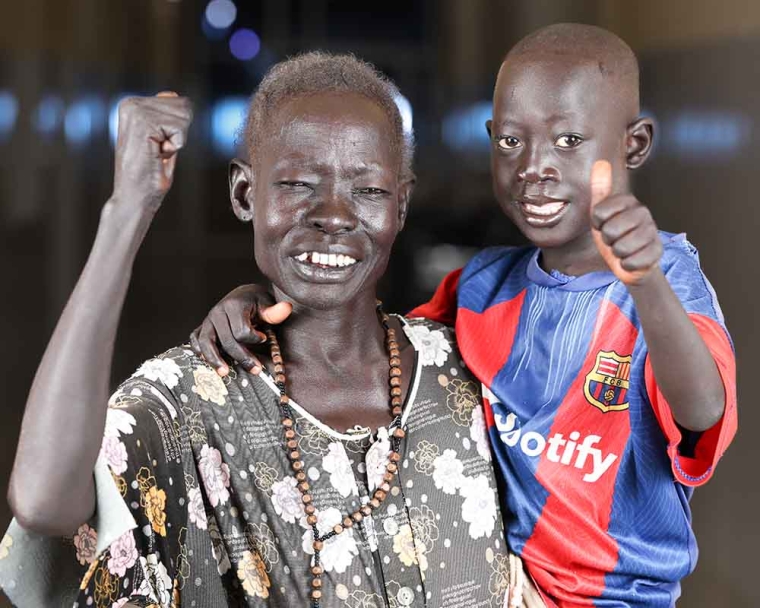
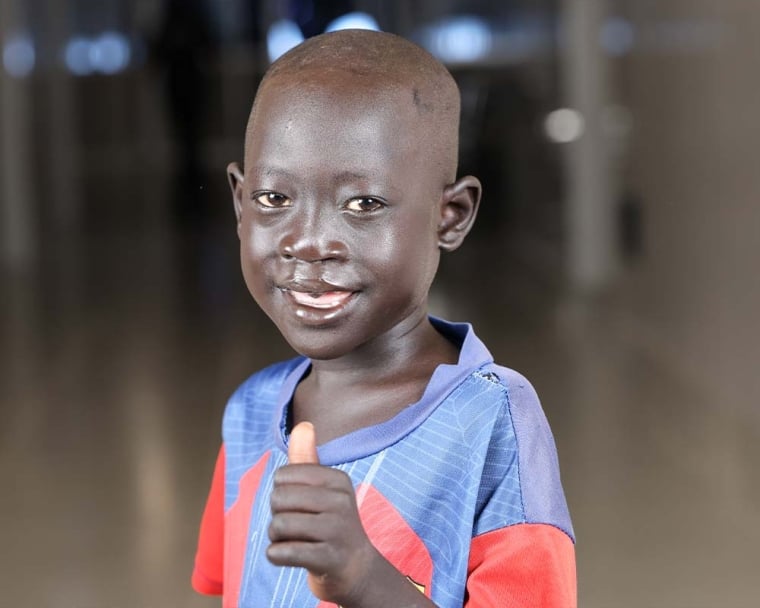
Abuk still remembers her son’s first smile after surgery.
“It was a miracle. His cleft lip was healed, and later his palate. Seeing other parents in the hospital with children like Ngor brought me relief, knowing this condition could affect anyone.”
“I pray for everyone who supported my child. To have his surgery done for free, and to see the numerous blessings he brings, I am truly grateful.”
Nyanchiek, 8
When Nyanchiek was born with a cleft, her own grandmother rejected her. She told Akupiir, Nyanchiek’s mother, to leave her to die.
Akupiir would do no such thing. She loved her daughter, even as society offered nothing but cruelty. At village gatherings, Nyanchiek was not even allowed to use communal utensils to pick up food — she had to bring her own.
"My heart shattered every time I saw her in tears, feeling rejected and unwanted by everyone,” Akupiir remembered.
Like so many other parents in South Sudan, when Akupiir heard that fateful radio ad for cleft care at Mary Help Hospital, she allowed herself to imagine that a better future might be possible for her daughter.
“I knew we had to try. It was our hope for Nyanchiek to live a life free from ridicule and pain.”
They left right away, and the team at Mary Help scheduled her surgery for the soonest possible time.
Gallery
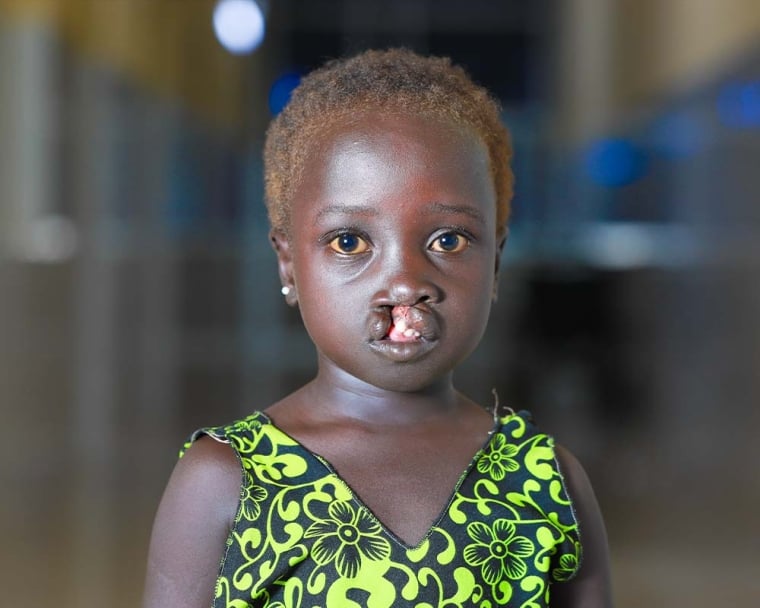
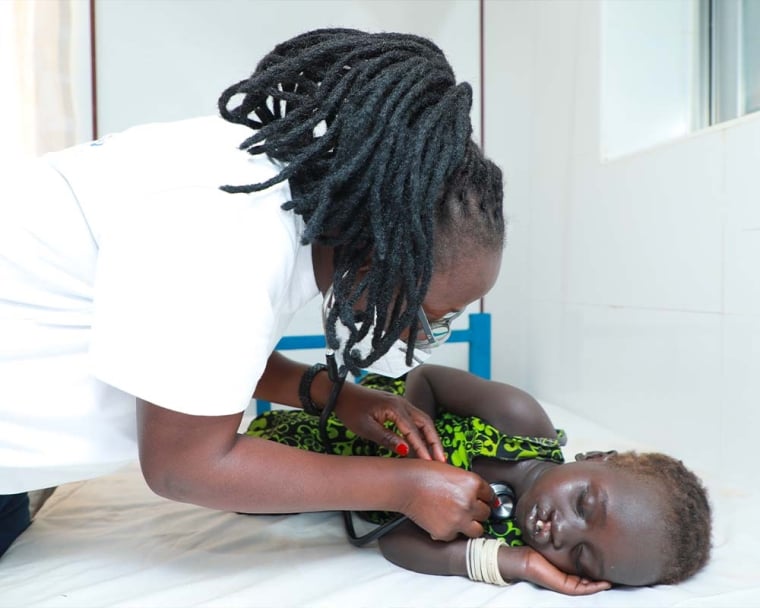
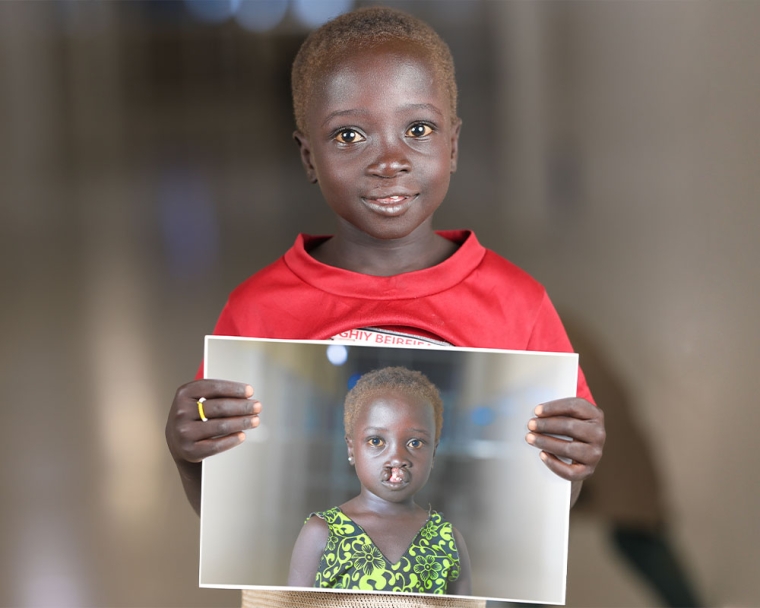
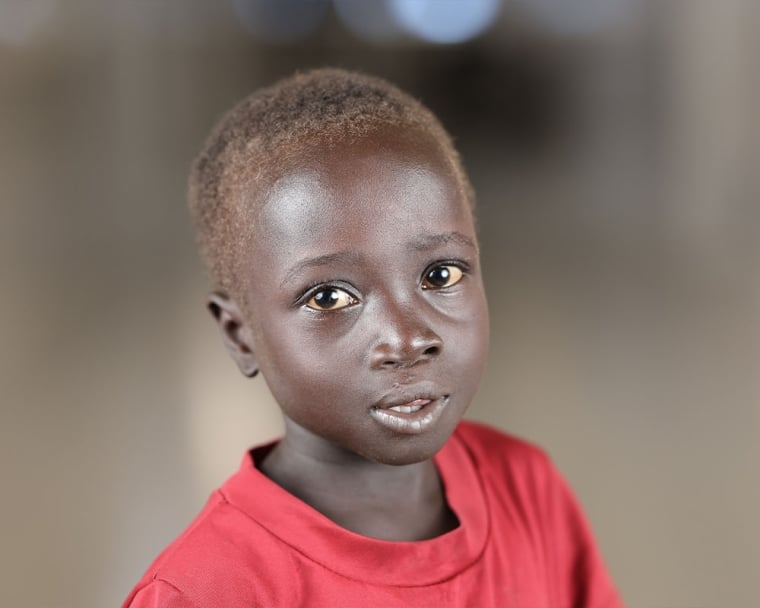
Seeing her new smile for the first time, Nyanchiek’s grandmother marveled at her transformation and asked for forgiveness. She even gave Nyanchiek a new name to bring them together: Nyilwel, the same as hers.
Today, Nywilel is joyful and confident and loves playing with her siblings and friends.
Give life-changing cleft care to a child.
